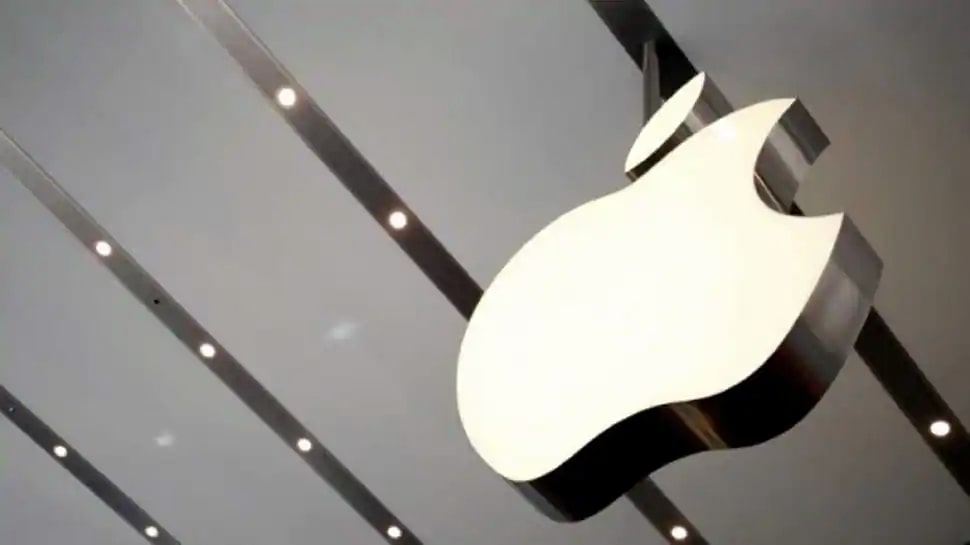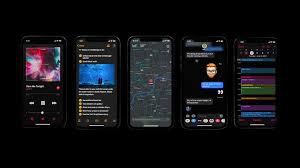Let artificial intelligence do the health check
Tech businesses are beginning to see manageable in most cancers prognosis and prediction, even as a grasp of homegrown startups has already come up with modern options in this space.
April ultimate year, a scientific system powered by synthetic talent (AI) obtained approval from the US Food and Drug Administration (USFDA), marking a historic second in healthcare globally.
The IDx-DR, a software program algorithm that makes use of AI to analyse pictures of the eye using a camera, finished an 87.4% accuracy charge whilst detecting ‘more than mild’ diabetic retinopathy, a situation where excessive blood sugar ranges harm the blood vessels in the retina.
For IT services firms, which are already developing AI and machine language (ML) equipment for different uses and industries, extending AI and ML capabilities to healthcare is a pretty non-complex process, and comes with a large upside.
Rather than doing it totally on their personal though, these agencies are partnering medical institution chains and niche players in the discipline to acquire the required domain expertise.
For instance, Japanese technology association NTT DATA Services tied up with Pune’s Deenanath Mangeshkar Hospital last yr to use an AI-based solution to diagnose emphysema, a continual condition of the lungs. Over a sixmonth period, the detection rate of its proof-of-concept solution grew to become out to be 170% greater than normal systems.
“The use of AI to automate insights and tangentially enhance the process of care transport helps healthcare companies who are beneath increasing scrutiny for quality, often being asked to do more with less time and resources, and in each case, challenged via the amount of digital statistics that every medical doctor need to combine to make a medical decision,” stated Mitchell Goldburgh, global options leader for the company’s company imaging and analytics practice.
NTT’s solution leveraged on its two-decade-long ride in integrating medical imaging with more moderen AI equipment to analyse images. The employer is currently working with companions and going for walks trials in nations inclusive of India, the US and Japan.
“We have been in the early tiers of commercialising the AI factors on our platform – presenting get admission to to purchasers for pilots around evaluating the medical effectiveness of AI in medical imaging,” Goldburgh said.
Many of its purchasers are thinking of collaborating in this AI boom, he said, including that the programme approves clients to make a contribution curated statistics to boost AI solutions in trade for early get admission to to algorithms and to make cash off their data.
“There are more than a few aspects to the usage of tech in healthcare — predictive diagnostics, affected person trip and connecting them with caregivers and the ecosystem of provider providers. Adding AI to existing equipment can make the system extra efficient,” stated Rakesh Barik, a accomplice at consultancy company Deloitte India.
Not too far from Deenanath, home-grown technological know-how offerings issuer Persistent Systems has been the usage of AI and ML in healthcare, particularly predictive diagnostics.
The agency has partnered with Prashanti Cancer Care Mission to develop a platform that will become aware of new markers in patients with triple negative breast cancer, in order to become aware of the sickness early. Separately, Persistent is questioning of partnering any other client in the US to create a answer for early detection of lung cancer.
The mid-tier software offerings agency is also working with a US startup to develop a tool that will predict the probability of persistent kidney disorder in Africans and Asians, and is working to prolong that to human beings of other geographies. The employer has made acquisitions in this house to improve its healthcare solutions.
Persistent has the requisite technological know-how expertise, having labored on ML and predictive modeling for over a decade, a agency spokesperson said.
“These are the two critical areas for healthcare. We do high degree work with predictive modeling as a tech organization and companion with domain professionals like labs to use our tech knowledge in these areas,” she said, including healthcare was an essential vertical for the company.
India’s top IT offerings issuer Tata Consultancy Services (TCS), too, has set up a lookup centre in partnership with Tata Medical Centre to advance technological know-how for clinical trials, risk-adapted treatment, predictive consequences and biomarkers.
TCS affords options to increase a data-driven research platform, based totally on integrated analyses of medical and laboratory studies.
At its Translational Cancer Research Centre, the center of attention is on developing partnerships that supply modern, affordable most cancers therapy and additionally strengthen costeffective fashions of care.
This includes innovatively designed medical studies, biomarker analyses and simple research built-in into a modular lookup theme, components of which TCS will be involved in.
Technology behemoth Microsoft is also no longer too some distance behind, and has invested in the sector.
Last September, Microsoft partnered with SRL Diagnostics to supply one million biopsy samples from sufferers identified by using medical doctors earlier, in order to teach its AI system to discover cancer. It is also working with Apollo Hospitals to build an AI device that can detect heart irregularities in patients, to give them a fitness score.
CANCER FOCUS
In India, the excessive cost of treatment is one cause why corporations are focusing their energies on latestage cancers. The incidence-to-mortality charge for cancer right here is among the highest in the world. The focal point is on cancer treatment, given the enormity of the problem.
According to an EY report, 55% of the breast most cancers cases in India were detected at a late stage, in contrast to 11% in the UK. Similarly, for cervical cancer, 85% of the instances were detected at the 1/3 or fourth stage, towards 25% in the UK.
A large number of most cancers deaths, specially in these cases, could have been avoided if the disease had been detected on time.
“Screening efforts are very poor and there is very low awareness, and this is a cultural challenge. Having low-cost, less-invasive screening solutions will democratise most cancers care,” said Kaivaan Movdawalla, Partner – Performance Improvement Healthcare, EY India.
So, tech businesses are starting to see conceivable in cancer analysis and prediction, even as a take hold of of homegrown startups has already come up with revolutionary solutions in this space.
STARTING IT ALL
Bengaluru-headquartered Niramai Health Analytix is one such startup that has unexpectedly gained visibility. Its portable science uses massive data analytics, AI and ML to display screen breast most cancers cases early and accurately.
“A large number of breast cancer deaths can be prevented. Having a less invasive answer the usage of synthetic intelligence and thermal imaging is something that’s nicely perfect to diagnostic centres. Our answer is reachable in over 30 hospitals in India,” stated chief government Geetha Manjunath.
The employer is now growing AI-based computer-aided software program to control the unfold of River Blindness, a ailment triggered with the aid of a parasitic worm infection.
While Niramai has added in an completely new way of detecting cancer, the Pune-based Optrascan
PIC FOR REPRESENTATION PURPOSE ONLY
has developed a digital pathology solution that can substitute microscopes in laboratories. Optrascan applies AI and ML algorithms to slides that pathologists work on, and has an accuracy stage of over 95%.
On the different cease of the spectrum, Bengaluru-based OncoStem Diagnostics has developed a answer that makes it easier for sufferers to check for recurrence of cancer. It doubtlessly reduces instances the place chemotherapy can also be required, if the take a look at on the tumour tissue shows it is a low-risk affected person and not inclined to recurrence, according to the company.
While these corporations may additionally be working to create options for a unique disease, most of their tools can be prolonged to realize different illnesses as well.
In January, Mumbai’s Wadhwani AI signed up as the professional AI companion for India’s Central Tuberculosis Division.
The business enterprise will work to address multiple challenges round TB care, such as case-load estimation at the district degree the use of threat and transmission factors, and prioritisation of TB patients for health workers with the aid of classifying the threat of them losing off from treatment.
The business enterprise is also growing a smartphone-based digital weighing machine to allow frontline employees to display screen for kiddies with low delivery weight, in order to improve toddler health.
One of the largest challenges these startups face is gaining scientific acceptance, as most options that they advance want USFDA approval.
For many startups, market presence and attain additionally stays a challenge. Partnerships with giant hospitals or corporates appear to be the exceptional choice to make certain their answer reaches as many people as possible.
“While most of the work in coming up with low-cost, noninvasive solutions is being pushed through startups, there are still gray areas. Who is responsible for an mistaken diagnosis because of a glitch – the software developer or the scientific practitioner?” Movdawalla of EY India asks.
In such a situation, partnering with large tech companies will make it less difficult for startups to gain acceptance and access to clients.
For instance, science leader Google is searching to boost an AI answer that is sturdy sufficient to accurately discover diabetic retinopathy the use of low-quality images. The agency has been working with Indian hospitals to better teach its AI system.
Last year, the AI solution began giving preliminary consequences to help physicians make a extra correct diagnosis, after Google partnered leading eye care chains Narayana Nethralaya, Aravind Eye Hospital and Sankara Nethralaya.
“Today, we have volumes of statistics available. We can draw insights from this records and loop it lower back into the decision-making process. We now have tools to make experience of each structured and unstructured data,” said Barik of Deloitte India.
A lot will, however, rely on how successfully this information can translate into an AI-powered healthcare solution.




